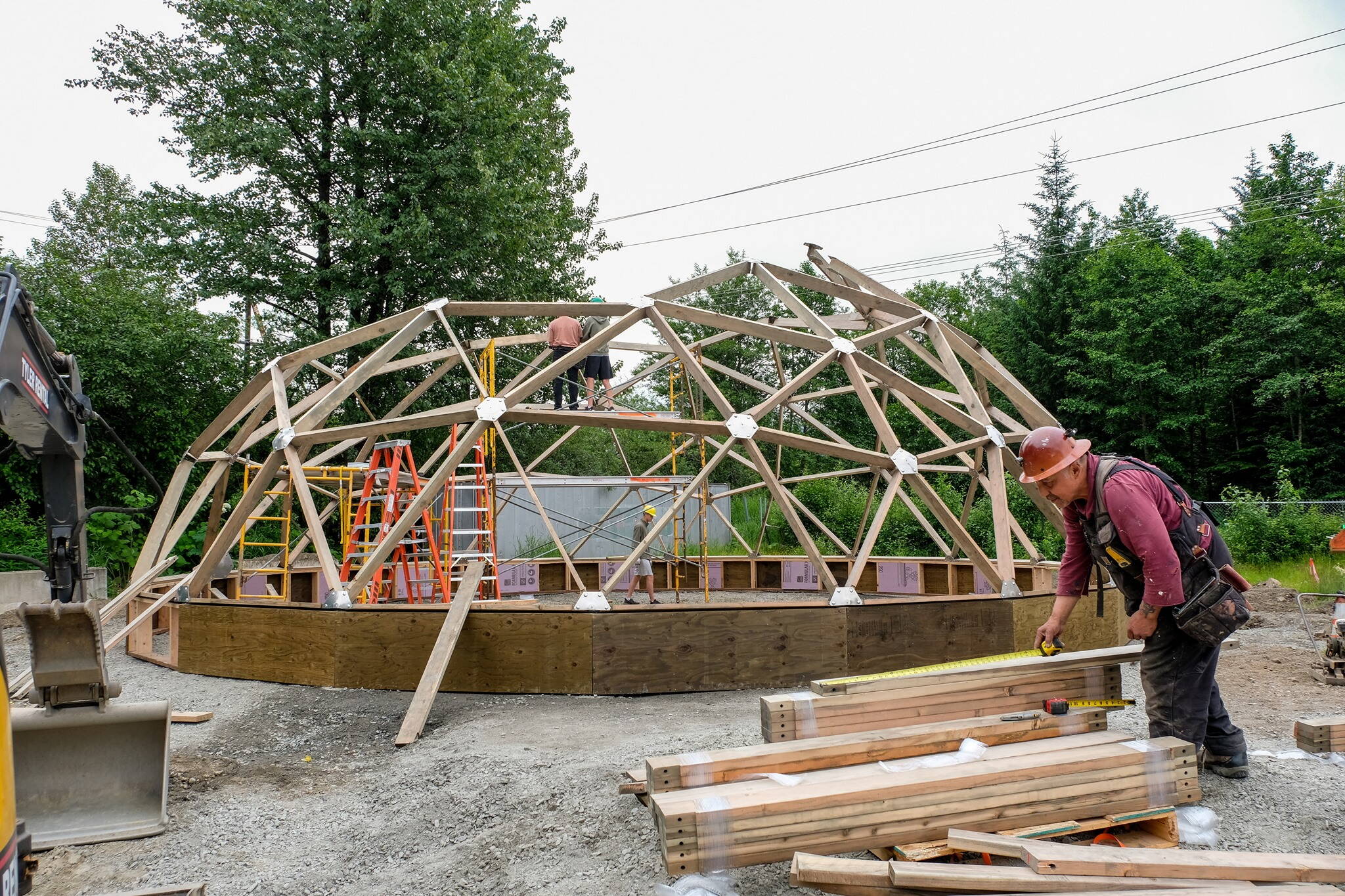A $15 million federal grant to establish or expand composting operations in five Southeast Alaska communities, including Juneau, is being awarded to the Central Council of the Tlingit and Haida Indian Tribes of Alaska, according to a U.S. Environmental Protection Agency announcement Thursday.
The other communities where composting operations are planned are Wrangell, Hoonah, Petersburg and Yakutat, according to the tribe’s application. A summary of the application states it “will lower energy demands and reduce shipping costs and fuel consumption associated with waste management,” while also “creating high-quality training and job opportunities for community members.”
The funding is part of $78 million in Climate Pollution Reduction Grants grants awarded to tribes in Alaska and the Pacific Northwest, according to an EPA press release. Other major Alaska grants include $24.2 million to the Alaska Native Tribal Health Consortium to install two wind turbines and wind-to-heat boiler on the Toksook Bay grid, and $14.8 million to the Aleut Community of Saint Paul Island for three new wind turbines and upgrading three existing ones.
Tlingit and Haida is already engaged in composting as part of a food sovereignty project in Juneau, which includes sites such as the Taay Hít greenhouse built in 2021 behind the Edward K. Thomas Building. The tribe also received a $1.5 million grant from the federal Solid Waste Infrastructure for Recycling last November as part of its effort to expand its regional solid waste management hub.
The summary for the new EPA funding states the composting operations in the five communities will include “workshops and training sessions on proper composting techniques for community members, ensuring that these individuals have the knowledge and skills necessary for effective waste management.”
Inquiries by the Empire by phone and email to a tribe spokesperson did not receive a reply Thursday.
An expansion of local composting operations is also underway by the City and Borough of Juneau, which is proposing a municipal facility at the site of the former Lemon Creek Gravel Pit that could be open to the public by 2027. CBJ has received $2.5 million in federal funds for the facility, which could have a total cost of more than $7 million, and in February the EPA issued a “no significant impact” finding in terms of potential environmental consequences for the project.
It’s too soon to know how the expansion by Tlingit and Haida might overlap or otherwise affect the municipal facility, CBJ Public Works Director Denise Koch wrote in an email Thursday.
“CBJ is happy to hear about Tlingit & Haida’s successful grant application,” she wrote. “It is too early to know any details about if or how the T&H and CBJ compost plans would interact. CBJ recently commissioned a Waste Characterization Study and the results show that 32% of Juneau’s garbage is compostable. We estimate that less than 5% of Juneau’s waste is currently composted. So I think there is room for multiple entities (government, Tribal, and private) in this arena.”
Concerns about the plans by the tribe and CBJ have been expressed by Lisa Daugherty, owner of the privately operated Juneau Composts that has existed for the past eight years.
“With all due respect, CBJ and Tlingit and Haida have ZERO experience composting, yet they have received millions in federal money for compost infrastructure,” a message posted on Juneau Compost’s Facebook page last November states. “As an LLC, Juneau Composts was not eligible to apply (for) those grants. Now, JC is poised to get completely cut out of the very thing we built from scratch.”
Some residents who support Juneau Composts operations have urged the Juneau Assembly to allow the company to use the CBJ grant funds to expand operations.
• Contact Mark Sabbatini at mark.sabbatini@juneauempire.com or (907) 957-2306.

